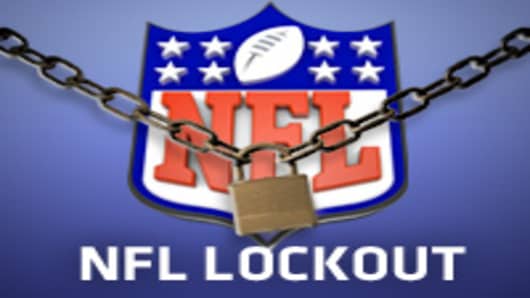The idea that the owners and the union have extended the Collective Bargaining Agreement for another day is a huge win for the NFL Players Association.
Why? Because the only reason to extend the terms of the CBA is to avoid the legal wrangling that the owners want to stay away from.
For the entire history of the league, the owners have held the upper hand in negotiations with the players.
The players play in the most dangerous sport of the four majors and they don't have guaranteed contracts. And while labor peace is one of the reasons why the league is as popular as it is, many will say that labor peace came as a result of the players, led by the late executive director of the union Gene Upshaw, folding too easily. It's one of the reasons why the selection of his replacement, DeMaurice Smith, from the outside world made so much sense.
But yesterday's extensionmeans the tide has turned.
By all accounts, the owners and the players are still far apart on the key issues -- the revenue split, the extending of the season, the rookie wage scale.
There's really no need to extend the current Collective Bargaining Agreement. Not enough money is being lost between now and August.
There are plenty of days to talk. But since the end of the CBA is tied into when a lockout would take place as well as the much speculated decertification would be put into place by the union, its the clock that is important.
The owners have reason to be scared. This week, Judge David S. Doty overruled a special master by saying that the contracts that provided
$4 billion in television money that the league would receive even during the lockout were not done in good faith.
It's not necessarily about the inability to use the so-called war chest, though the numbers are staggering (the league could have kept
$421 million that it wouldn't have had to return to the networks in the event of a missed season.)
It's really about the fact that the players can get negotiations in front of Doty if they decertify and cease as a union in order to file an antitrust lawsuit against the league. The owners know this. They tried to get Doty dismissed as the judge presiding over the CBA after he determined that Michael Vick didn't have to pay back $16.5 million in bonus money, which they thought was an unfair ruling.
Combining that with his finding that the league was in violation of antitrust laws in 1993, which led to free agency, his record shows that he is overwhelmingly pro-union.
Legal matters pertaining to the Collective Bargaining Agreement are automatically fed to Doty's court in Minnesota simply because he presides over the league's Collective Bargaining Agreements, which, technically, have been extended since 1993 with different terms agreed to with each labor negotiation since.




